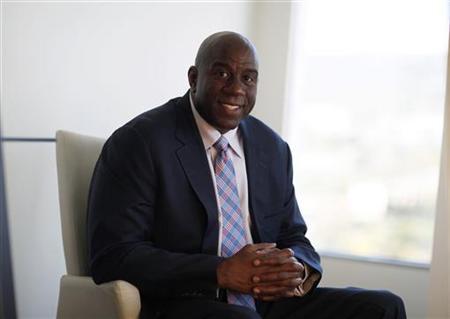(Reuters) – Chris Williams, a solidly middle-class family man, is so wary of banks and overspending, that he has become the new face of prepaid debit cards.

The 49-year-old executive at a public relations firm in Meredith, New Hampshire, swore off credit cards in favor of a prepaid debit card before a trip to New York last year, hoping it would keep a lid on the family’s spending. It soothed him to know the card walled off financial information that thieves can potentially steal from credit card companies.
The experience proved so positive, Williams plans to continue using the card, even though the charges for using prepaid cards can far exceed the costs associated with using credit cards, checking accounts or other forms of payment.
Indeed, experts caution that these cards aren’t right for everyone and that consumers need to look past the vigorous marketing pushes by prepaid card firms that use celebrity faces or folksy, anti-Wall Street messages to lure new, middle-class customers.
Prepaid debit cards, which came into the marketplace in the mid-1990s, allow consumers without credit cards or bank accounts to make card purchases or to get cash via ATM networks. The supposed advantage is that the accounts don’t overdraft, because they only access your own funds.
But they come with fees that can add up, with several studies showing these often exceed those charged by checking accounts.
CHALKING UP FEES
A Nerdwallet.com study from May found “prepaid fees were just as complex and even more common, and that the perceived benefit of ease of budgeting comes with unexpected costs.”
For example, Williams’ prepaid card comes with a $3 monthly fee, and charges for extras such as balance inquiries and reloading fees, while a typical checking account has no fees with minimum balance requirements.
Still, the audience is growing, to a forecast of $201.9 billion in transactions in 2013, from $28.6 billion in 2009 according to the Mercator Advisory Group.
In contrast, the total market for all transactions for 2011 – debit, credit and prepaid debit – totaled $135.33 billion, according to the Nilson Report.
For financial firms such as JPMorgan Chase & Co, American Express Co and Wells Fargo & Co, there are strong incentives to roll out new varieties of prepaid debit cards. For one, the government is yet to regulate the prepaid debit-card transaction fees charged to merchants.
Credit cards and bank debit cards, on the other hand, face limits imposed by the Durbin Amendment of the Dodd-Frank Act since October 2011, making them less profitable to the issuers.
Free from curbs, these prepaid debit cards are being pitched beyond the “unbanked” and toward a broad audience that includes teenagers, college students and young adults with no credit history, middle class families trying to control spending, others without credit cards who wish to make online purchases, and others simply averse to banks.
And to pitch their message, companies have turned to an array of celebrities, including reality TV star family the Kardashians, rap mogul Russell Simmons and personal finance guru Suze Orman.
CELEBRITY SIZZLE
“When you are coming in new to a marketplace, you want some sizzle, you want people to pay attention to your card. Celebrities can do that,” says basketball legend Magic Johnson, who just debuted the “The Magic Card” card last week.
Johnson is slightly different from other celebrity endorsements in that he’s a business owner of the product, along with OneWest Bank, FSB, rather than just a paid spokesperson.
Fees for Johnson’s card start with a set-up charge of $4.95, a monthly fee of $4.95 and extras like balance inquiries, which cost 50 cents each, consistent with competing cards. But, Johnson tells Reuters, the fees are justified by the services.
“We have features that can help them understand money, getting their credit in order,” he says.
Still, he cautions, the card has no bearing on a user’s credit score and does nothing to help build better credit.
“A card can never do that,” Johnson says. “You have to become more disciplined. You have to not overspend.”
CAPITALIZING ON CONFUSION
This can be a surprise to some unsophisticated card users who believe that using prepaid cards will help them improve their credit scores.
Indeed, it’s one of several misconceptions caused by marketing ploys, says Odysseas Papadimitriou, chief executive of Cardhub.com.
“Prepaid companies are capitalizing on people’s confusion by making credit references, and making people think a prepaid card has something to do with credit history,” he says. “They bring in celebrities to get people distracted from the main things they should be focusing on when they pick a product – the fees and terms – not how cool the plastic looks.”
Marketing a product to people who have a bias against banks and other big financial institutions can be tricky. Yet it was inevitable, says Ben Jackson, senior analyst of the prepaid advisory service of the Mercator Advisory Group.
Note a pitch from American Express for its new Bluebird prepaid debit card, in partnership with Wal-mart Stores Inc, which is currently in a limited test launch:
“Let’s face it, most banks take advantage of us. You give them your money, and then they just keep taking your money with fees and charges,” says an online marketing survey for the card.
Yet, that’s exactly what prepaid debit cards do.
They accept your money and then diminish it with fees and charges. None of the cards offered so far are completely free, and most of them are directly issued by banks and credit card companies, or at least in partnership with them.
Laura Kelly, American Express’ senior vice president and general manager for the Americas, says the cards are “providing an alternative to the consumer” since 45 percent of Americans don’t have a credit card.
She says there’s no irony in the company providing an alternative to its own credit card.
“A lot of the time, unfortunately, people don’t realize. They hate banks…but they think VISA is their card versus Capital One,” says Papadimitriou.
(Editing by Chelsea Emery and Bernadette Baum)





